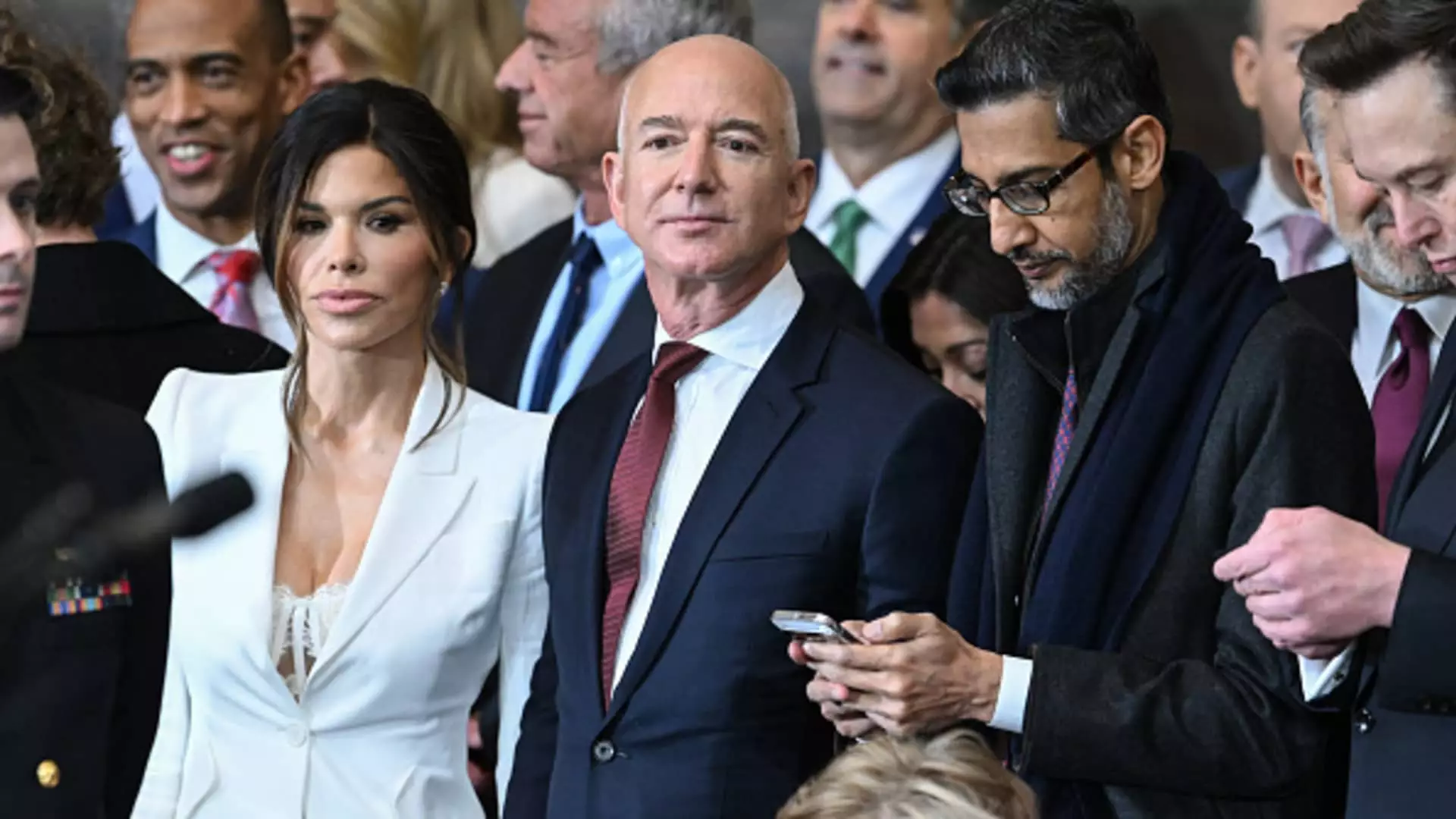The Washington Post, a prominent player in American journalism, has made waves once again under the ownership of Jeff Bezos. In a recent announcement, Bezos revealed a new editorial policy focused on promoting “personal liberties and free markets,” while delineating that opposing views would no longer find a platform within the newspaper’s opinion pages. This decision has provoked a mix of reactions, highlighting the complex intersection of media, ownership, and political influence.
The Background of Bezos’ Decision
Jeff Bezos, renowned for founding Amazon and taking the helm of The Washington Post, emphasized that this shift was a response to changing media consumption trends. In his view, the digital age has diversified opinion sources, and traditional newspapers should concentrate on definitive ideological stances. However, this assertion raises significant questions about editorial integrity and the role of dissent within journalistic spaces. The suggestion that opposing viewpoints will now be delegated to other platforms signifies a troubling shift towards ideological homogeneity, which could undermine the principles of free speech and critical discourse vital to a democratic society.
While several figures, including those aligned with the Trump administration, expressed support for Bezos’ initiative, the reaction among Post staffers has been largely negative. Former editor Marty Baron publicly expressed his discontent, underscoring a rift between the newspaper’s legacy of editorial independence and the new directives imposed from above. The resignation of editorial page editor David Shipley, who felt uncomfortable leading an opinion section defined by strict ideological boundaries, further underlines the contentious nature of this editorial overhaul. Bezos’ sentiment—suggesting that if one is not wholeheartedly supportive of the direction, their departure is warranted—epitomizes a leadership approach that invites criticism not only from within the newsroom but also from the readership at large.
Historical Context: The Role of Owners in Journalism
It is not unusual for influential media owners to inject their biases into editorial policies. Historian comparisons have been drawn between Bezos’ recent changes and Rupert Murdoch’s impact on the New York Post in the late 1970s, where ideological shifts were evident post-acquisition. The different contexts, however, highlight the current complexities facing journalism. During an era rife with misinformation and polarized perspectives, the call for a single ideology may further exacerbate public distrust in media entities and contribute to a fragmented public discourse.
Bezos’ Broader Agenda: A Potential Conflict of Interest
Adding to the controversy is the timing of Bezos’ policies amid a politically charged atmosphere as the 2024 presidential election approaches. With the Post announcing it would not endorse either the Republican or Democratic candidates, deviating from its historical norm of providing editorial endorsements, the implications of this move are profound. Critics argue that Bezos’ decisions may be strategically aligned with broader corporate interests, particularly in light of the ongoing antitrust lawsuit faced by Amazon. This raises questions about the potential conflicts that exist between journalistic values and the financial motivations of corporate conglomerates.
The inherent risks of curating a narrow range of opinions can lead to dire consequences for the credibility and integrity of a news organization. Journalists within The Washington Post have remarked that Bezos’ directive marks a substantial shift in the landscape of the opinion section, with implications that dissent will be stifled. As chief economic reporter Jeff Stein articulated, such encroachments on editorial discretion challenge the very foundation of journalistic independence. For reporters and columnists committed to holding power accountable, there is a palpable fear of retaliation for presenting divergent viewpoints, which may inhibit the critical role journalism plays in a democracy.
As we navigate this transformative period in media, it is imperative for both the public and practitioners within the field to critically assess the ramifications of Bezos’ editorial changes at The Washington Post. This pivotal moment serves as a reminder of the responsibilities inherent in media ownership and the crucial role that diverse perspectives play in fostering a well-informed citizenry. The path forward requires open dialogue about the balance between business interests and the integrity of journalistic practice, ensuring that media outlets remain forums for robust debate rather than echo chambers for singular ideologies. In a society facing increasing polarization, finding a way to advocate for free expression while respecting diverse opinions has never been more critical.

